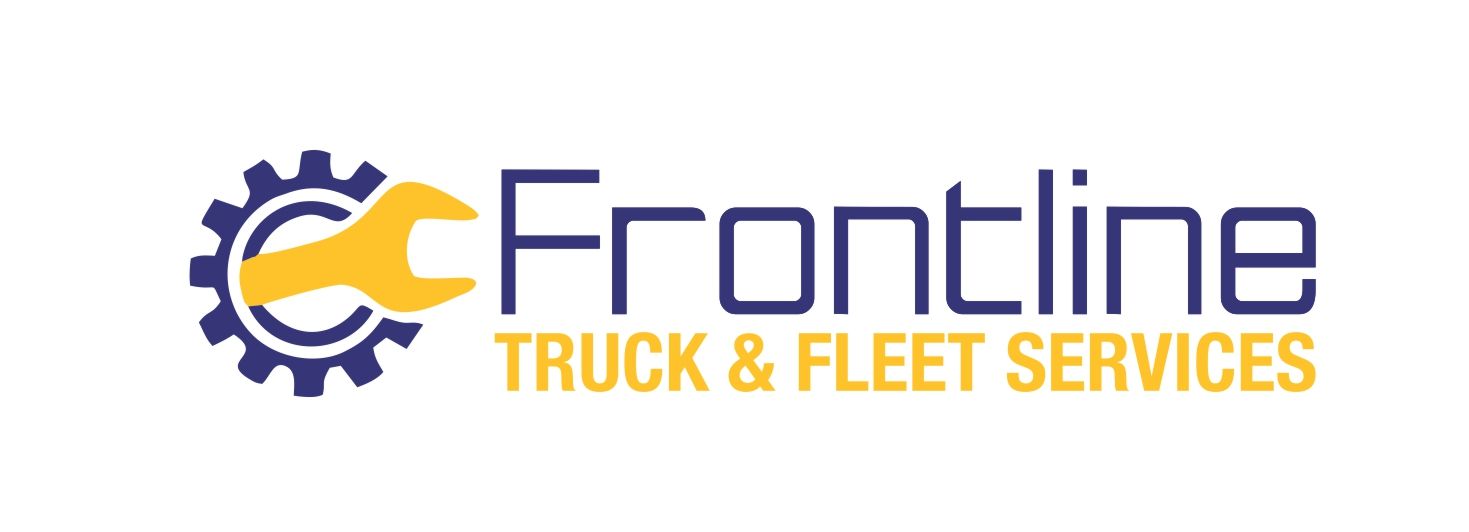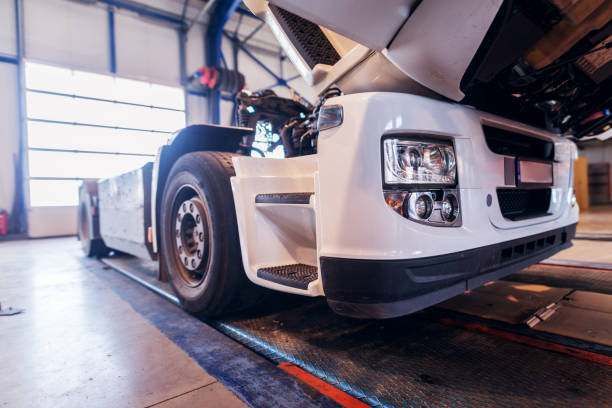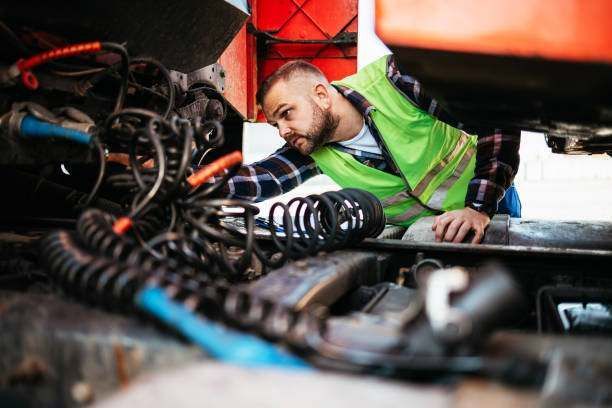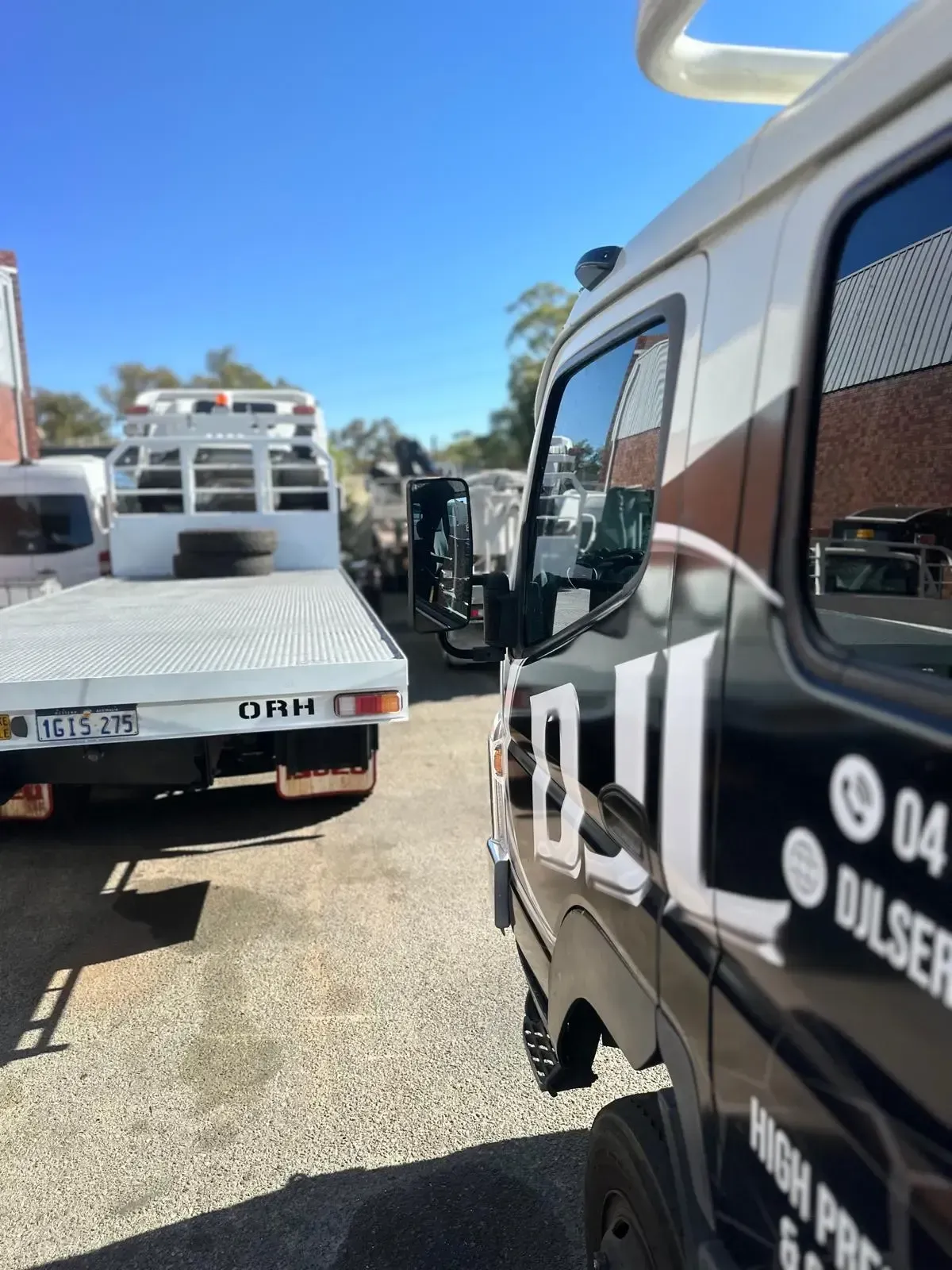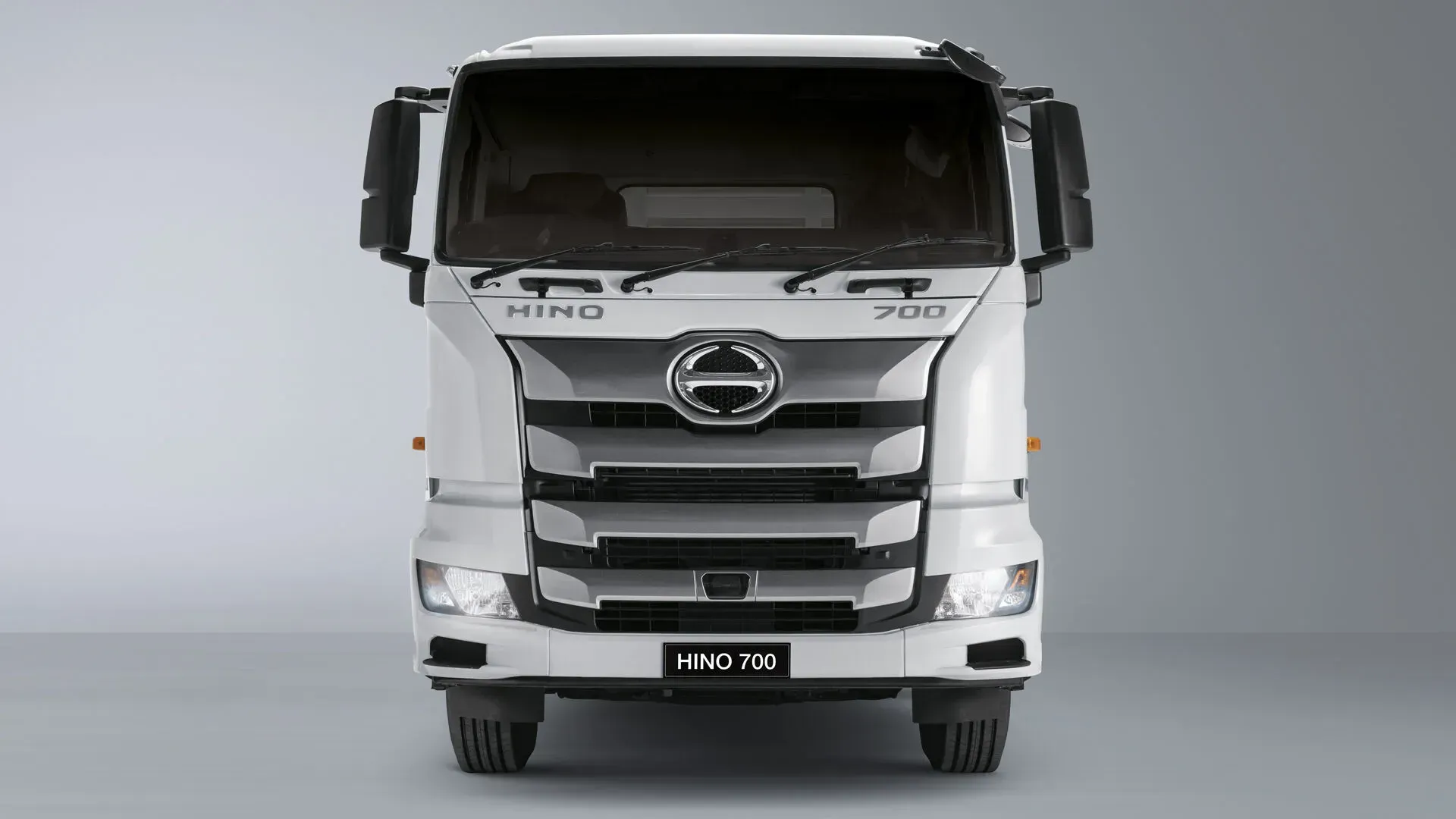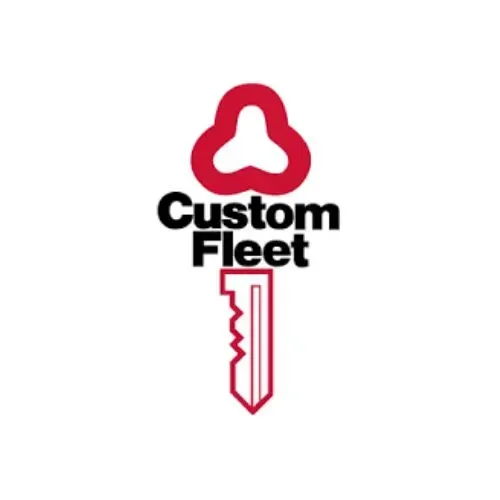"Call The Best , We'll Do The Rest"
Balcatta Truck Repairs: Comprehensive Repairs & Maintenance for Fuso Trucks
Maintaining the performance and reliability of your Fuso truck is essential for ensuring its longevity and efficiency. At Balcatta Truck Repairs, we specialise in comprehensive repair and maintenance services tailored specifically for Fuso trucks. Our expertise covers critical components such as clutch, suspension, brakes, and radiator cooling systems, ensuring your vehicle remains in optimal condition.
Understanding Fuso Trucks
Fuso trucks, renowned for their durability and performance, are a popular choice in the commercial trucking industry. These vehicles are designed to handle heavy loads and demanding driving conditions, making them indispensable for businesses relying on efficient transportation. Fuso trucks are equipped with advanced technology and robust engineering, providing excellent fuel efficiency, reliability, and low emissions.
Clutch Maintenance & Repairs
The clutch system in a Fuso truck is vital for smooth gear transitions and overall vehicle performance. A malfunctioning clutch can lead to difficulties in gear shifting, reduced power transmission, and potential damage to the transmission system. At Balcatta Truck Repairs, we provide a comprehensive range of clutch maintenance and repair services:
- Clutch Inspections: Regular checks to identify wear and tear. We meticulously inspect the clutch disc, pressure plate, and release bearing for signs of damage or excessive wear. This preventative measure helps avoid sudden clutch failures that can lead to costly repairs and downtime.
- Clutch Adjustments: Ensuring proper engagement and disengagement. Proper clutch adjustment is crucial for maintaining smooth operation and preventing premature wear. Our technicians adjust the clutch linkage and pedal to manufacturer specifications, ensuring that the clutch operates within the correct range.
- Clutch Replacements: Using high-quality parts to restore optimal function. When replacement is necessary, we use only high-quality OEM (Original Equipment Manufacturer) parts to ensure durability and performance. Our experienced technicians handle the replacement process efficiently, minimising downtime and getting your Fuso truck back on the road swiftly.
Suspension System Services
The suspension system in Fuso trucks plays a crucial role in maintaining vehicle stability and comfort. It supports the weight of the truck and absorbs shocks from road irregularities. Our services include:
- Suspension Inspections: Assessing the condition of springs, shock absorbers, and linkages. Regular suspension inspections are essential for identifying worn or damaged components that can affect vehicle handling and safety. We thoroughly examine leaf springs, coil springs, shock absorbers, and suspension linkages to ensure they are in good condition.
- Suspension Repairs: Fixing issues related to alignment, worn-out parts, and leakage. Suspension repairs are critical for maintaining optimal vehicle performance. We address issues such as misalignment, worn bushings, and leaking shock absorbers, ensuring that your Fuso truck remains stable and comfortable on the road.
- Suspension Replacements: Installing durable components to enhance ride quality. When suspension components are beyond repair, we replace them with durable, high-quality parts designed to withstand the rigours of commercial use. Our replacements ensure enhanced ride quality and improved handling, contributing to the overall safety and comfort of your truck.
Brake System Maintenance
A well-maintained brake system is essential for the safety of your Fuso truck. Regular maintenance ensures effective braking performance, reducing the risk of accidents. Our brake services cover:
- Brake Inspections: Checking brake pads, rotors, and hydraulic systems. Regular brake inspections are crucial for identifying issues before they become serious problems. We inspect brake pads for wear, measure rotor thickness, and check the entire hydraulic system for leaks and proper operation.
- Brake Repairs: Addressing issues such as brake fluid leaks and worn-out pads. Timely brake repairs are vital for maintaining safety and performance. We handle a range of repairs, including replacing worn-out brake pads, resurfacing or replacing damaged rotors, and fixing hydraulic leaks to ensure reliable braking performance.
- Brake Replacements: Using high-grade parts to ensure reliable braking. When brake components need to be replaced, we use high-grade OEM parts to ensure longevity and reliability. Our replacements restore full braking capability, ensuring that your Fuso truck can stop safely and effectively in all conditions.
Radiator Cooling System Services
The radiator cooling system in Fuso trucks prevents the engine from overheating, which can cause severe damage. Regular maintenance of the cooling system is crucial for engine longevity. Our services include:
- Radiator Inspections: Checking for leaks, blockages, and corrosion. Regular inspections of the radiator and cooling system help identify potential issues such as leaks, blockages, and corrosion that can impede cooling efficiency. Our thorough inspections ensure that the cooling system operates effectively.
- Coolant Flushes: Replacing old coolant to maintain optimal engine temperature. Over time, coolant can degrade and lose its effectiveness. We perform coolant flushes to replace old, contaminated coolant with fresh fluid, ensuring that the engine maintains optimal temperature and prevents overheating.
- Radiator Repairs: Fixing leaks and replacing damaged components. When issues such as leaks or damaged components are identified, we provide prompt and effective repairs. Our technicians are skilled in fixing radiator leaks, replacing hoses, and ensuring that the cooling system functions properly to protect the engine.
Radiator Cooling System Services
The radiator cooling system in Fuso trucks prevents the engine from overheating, which can cause severe damage. Regular maintenance of the cooling system is crucial for engine longevity and optimal performance. Our comprehensive radiator cooling system services include:
- Radiator Inspections: Checking for leaks, blockages, and corrosion. Regular inspections are essential for identifying issues before they escalate. Our technicians conduct thorough checks for leaks in the radiator and hoses, blockages that could impede coolant flow, and signs of corrosion that could weaken the system. Early detection helps prevent costly repairs and ensures the cooling system operates efficiently.
- Coolant Flushes: Replacing old coolant to maintain optimal engine temperature. Over time, coolant can become contaminated with rust, scale, and other debris, reducing its effectiveness. We perform coolant flushes to remove old, degraded coolant and replace it with fresh, high-quality coolant. This service helps maintain the correct engine temperature, prevents overheating, and protects the engine from damage caused by extreme temperatures.
- Radiator Repairs: Fixing leaks and replacing damaged components. When issues are detected, prompt repairs are essential to maintain the cooling system's integrity. Our skilled technicians can repair leaks in the radiator and associated components, replace damaged hoses and clamps, and address any other issues that could compromise the system. We use high-quality replacement parts to ensure durability and reliable performance.
Technical Information About Fuso Trucks
Fuso trucks are engineered with cutting edge technology to meet the demands of modern transportation. They are designed to deliver exceptional performance, efficiency, and reliability. Key features of Fuso trucks include:
- Advanced Engine Technology: Fuso trucks are equipped with efficient and powerful engines that comply with stringent emission standards. These engines incorporate advanced fuel injection systems, turbocharging, and intercooling to optimise performance and fuel economy. The engines are designed to deliver high torque at low RPM, providing excellent power and drivability while maintaining fuel efficiency.
- Enhanced Safety Features: Fuso trucks come with advanced safety systems to protect drivers, passengers, and cargo. Key safety features include anti-lock braking systems (ABS), which prevent wheel lockup during emergency braking; electronic stability control (ESC), which helps maintain vehicle stability by detecting and reducing loss of traction; and lane departure warning (LDW), which alerts drivers if they unintentionally drift out of their lane. These features enhance overall safety and help prevent accidents.
- Durable Construction: Fuso trucks are built with robust chassis and high-strength materials, ensuring durability and longevity under heavy loads. The chassis is designed to withstand the rigours of daily use, with reinforced cross-members and high-strength steel components that provide structural integrity. This durable construction ensures that Fuso trucks can handle demanding applications and deliver reliable performance over the long term.
- Innovative Design: The ergonomic design of Fuso trucks provides improved driver comfort and accessibility, reducing fatigue during long hauls. The cabins are designed with driver-centric features, such as adjustable seats, intuitive controls, and ample storage space. The layout of the dashboard and instrumentation is designed for easy access and visibility, enhancing the driving experience. Additionally, the cabins are equipped with advanced climate control systems, providing a comfortable environment for drivers in all weather conditions.
Conclusion
At Balcatta Truck Repairs, we are dedicated to providing top tier repair and maintenance services for Fuso trucks. Our team of experienced technicians ensures that your truck's clutch, suspension, brakes, and radiator cooling systems are in excellent condition, promoting safety, performance, and reliability. Trust us to keep your Fuso truck running smoothly and efficiently, allowing you to focus on your business operations.
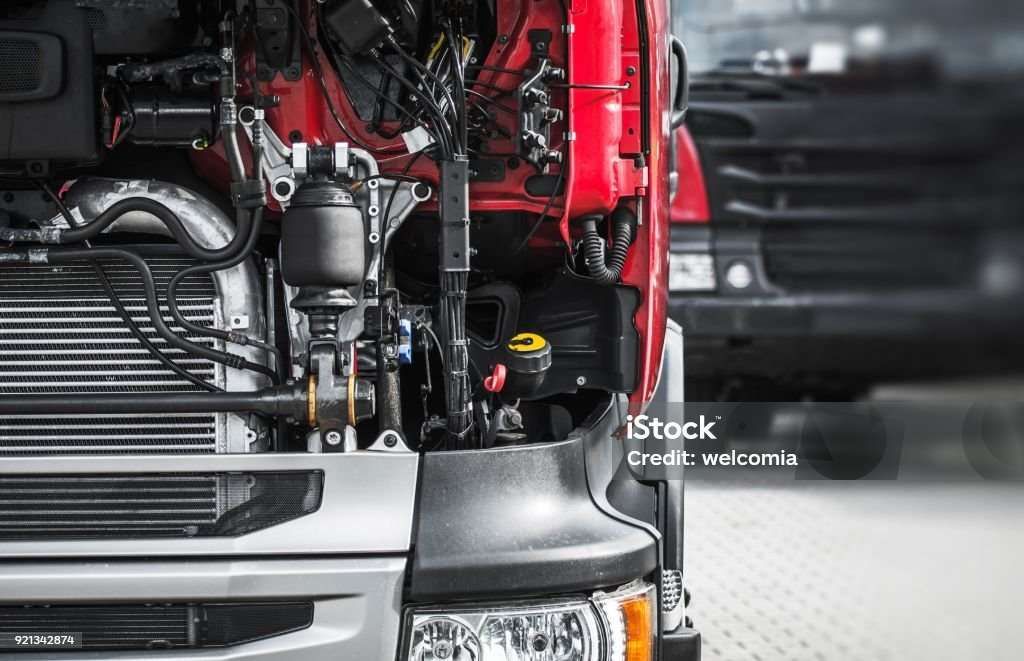
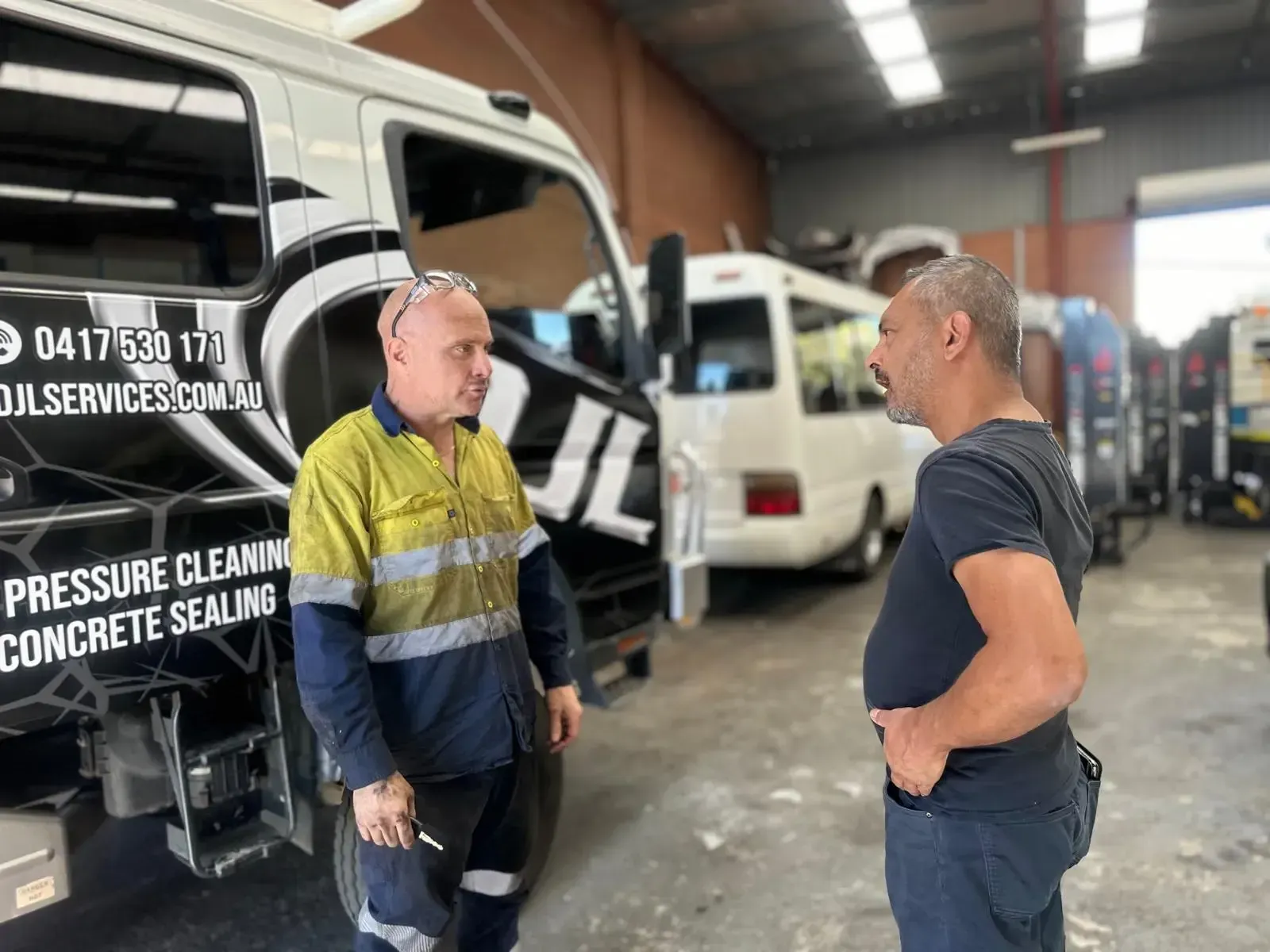
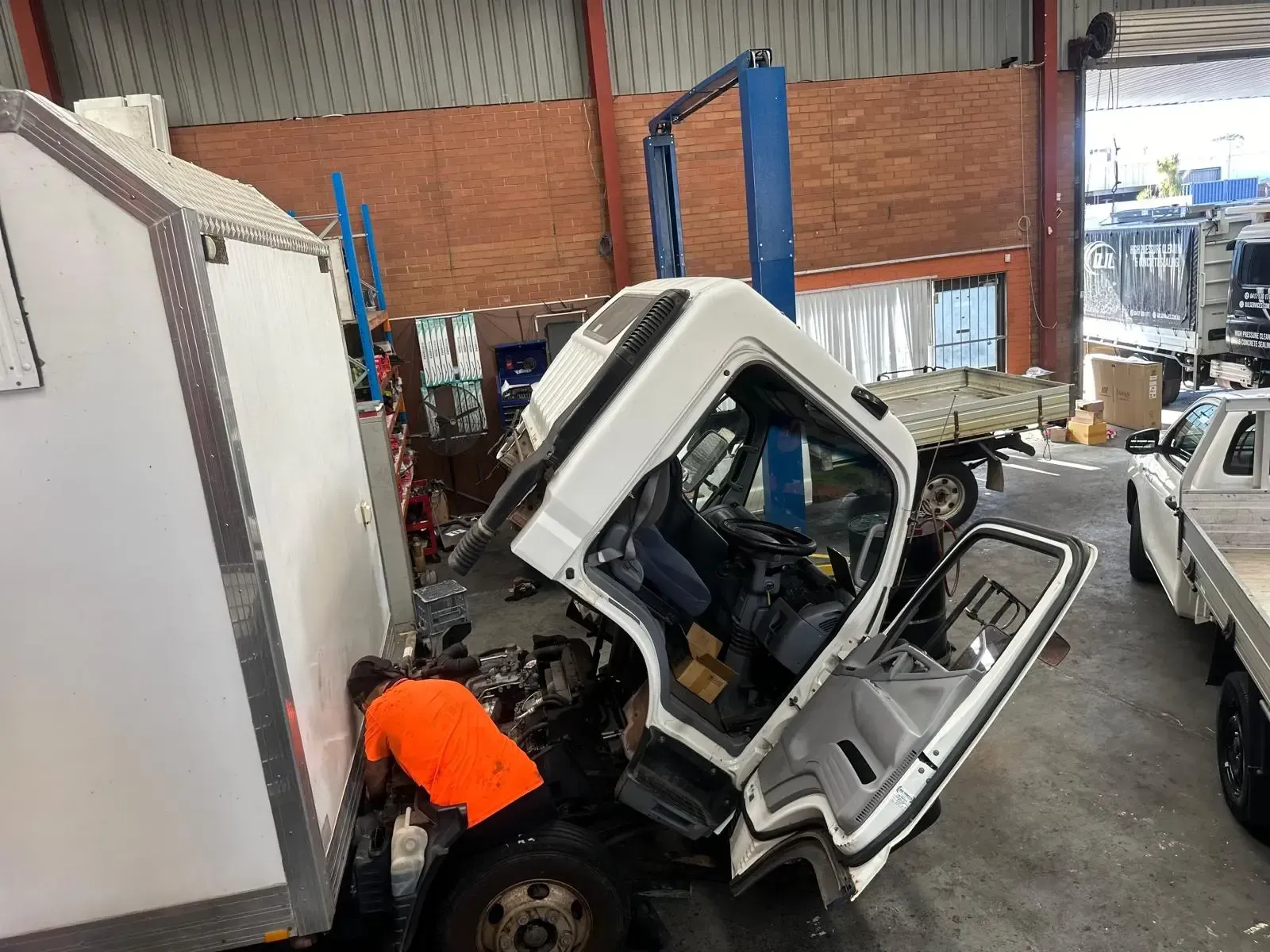
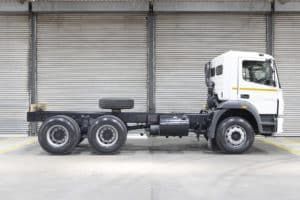
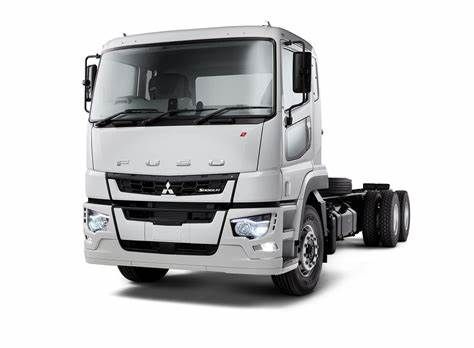
Our Affiliates

Email: service@balcattatruckrepairs.com.au
Phone: 08 9345 3122
